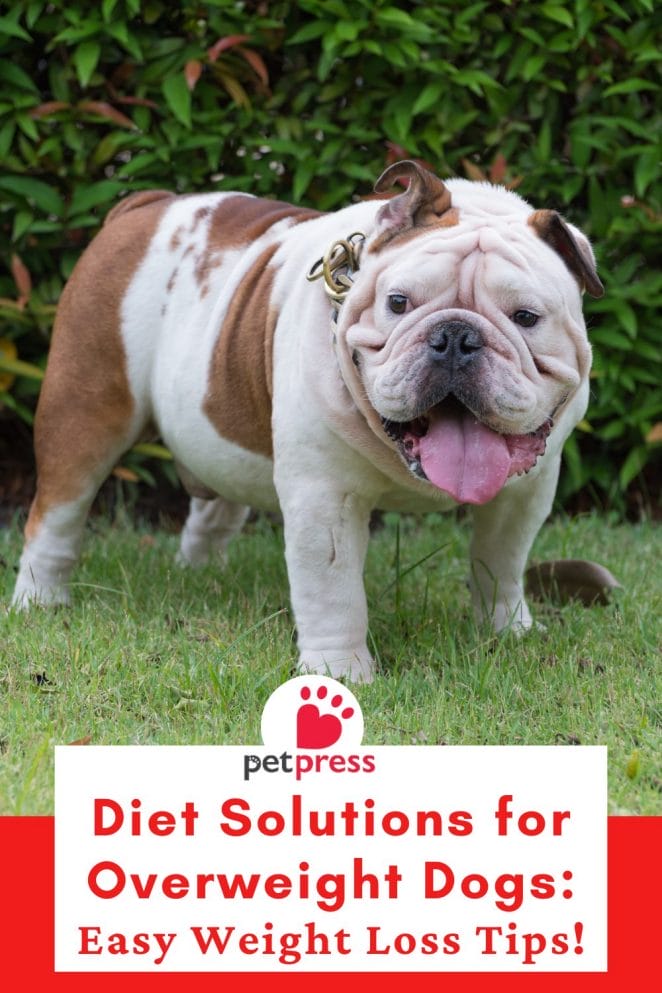
Obesity in dogs has become a growing concern among pet owners worldwide. Finding the right diet solutions for overweight dogs is crucial. It’s not just about aesthetics. It’s about health, vitality, and quality of life. A well-chosen diet can turn things around, making every wag of their tail a happier moment.
In this article, we’ll dive into simple yet effective weight loss tips for your furry friend. We understand the love you have for your dog and the desire to see them at their healthiest.
So, let’s embark on this journey together. With clear, actionable advice, we’ll help your dog shed those extra pounds and leap towards a more vibrant life.
Why Is Your Dog Overweight?
Dogs often gain weight for simple reasons.
Lack of exercise is a big one. Just like people, dogs need to move to stay healthy. If your pup spends more time snoozing than playing, those extra pounds can creep up.
Overfeeding is another common culprit. Those big puppy eyes can be hard to resist, but too many treats and oversized portions lead to weight gain. Remember, it’s about quality, not the quantity when it comes to their diet.
Medical conditions can also play a role. Issues like thyroid problems or hormonal imbalances make losing weight tough for dogs.
That’s why a vet visit is crucial. They can check for these hidden issues, ensuring your dog’s weight gain isn’t something more serious.
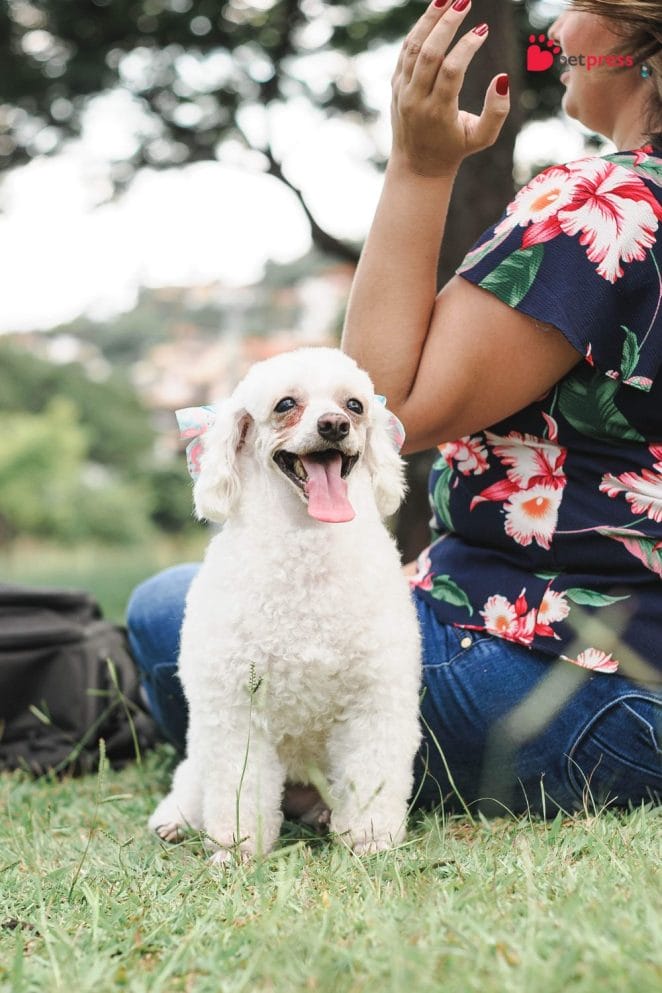
Understanding Dog Nutrition
Dogs need proteins for muscle and tissue repair. Sources include chicken, beef, and fish.
Fats provide energy and keep their coat shiny. Think of fish oils and animal fats. Carbohydrates from vegetables and grains give them fiber and more energy. Balanced amounts of these keep your dog peppy and healthy.
Read the Dog Food Labels
When picking dog food, look for the ingredients list. The first few items should be real meat or vegetables. Avoid products with lots of fillers, like corn or soy. The label should also show a balance of proteins, fats, and carbs. This ensures your dog gets all the nutrients without excess calories.
Customizing Your Dog’s Diet Plan
Every dog has a unique calorie need. It depends on their size, age, and activity level. A vet can help calculate this. Knowing the right amount helps prevent overfeeding or underfeeding.
Commercial vs. Homemade Diets
Commercial dog foods are convenient and scientifically balanced. But, they can have additives and preservatives. Homemade meals let you control ingredients, ensuring freshness.
However, balancing nutrients at home requires research and effort. Both options have benefits, so choose what works best for your dog and lifestyle.
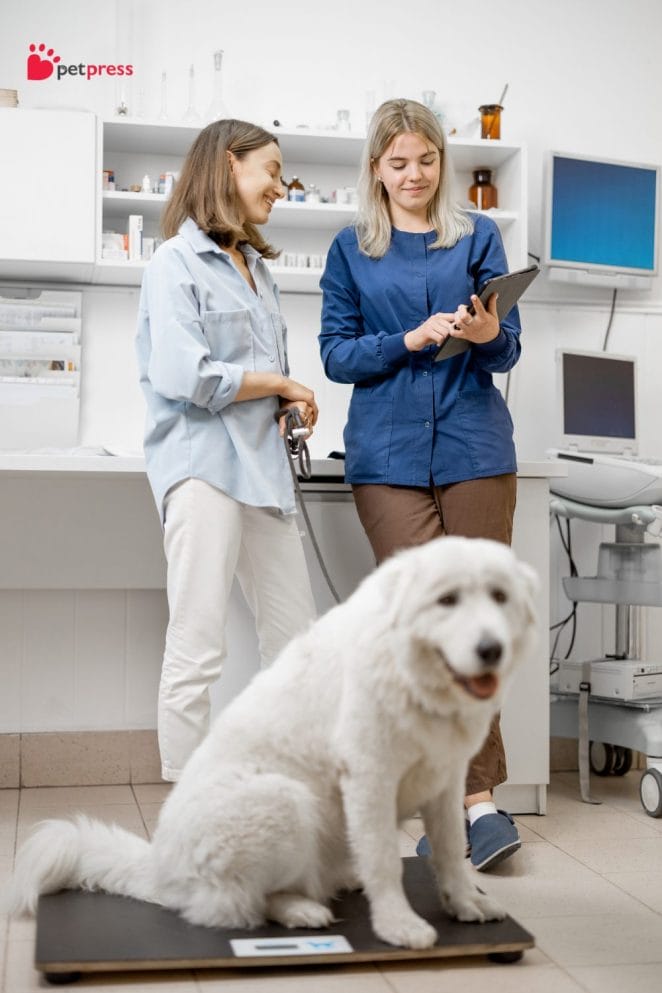
Practical Diet Solutions for Overweight Dogs
Portion Control: Less is More
Measuring your dog’s food portions can make a big difference. It ensures they’re not eating more than they need. This simple step can prevent unnecessary weight gain and help in weight management.
Healthy Snacking: Smart Choices
Choose low-calorie treats for your dog. Carrots, green beans, and apples are great options. They satisfy hunger without packing on the pounds.
The Power of Fiber
Fiber is a game-changer in your dog’s diet. It helps them feel full longer, reducing the urge to overeat. Adding pumpkin or sweet potato to their meals can boost fiber intake. This aids in gradual, healthy weight loss.
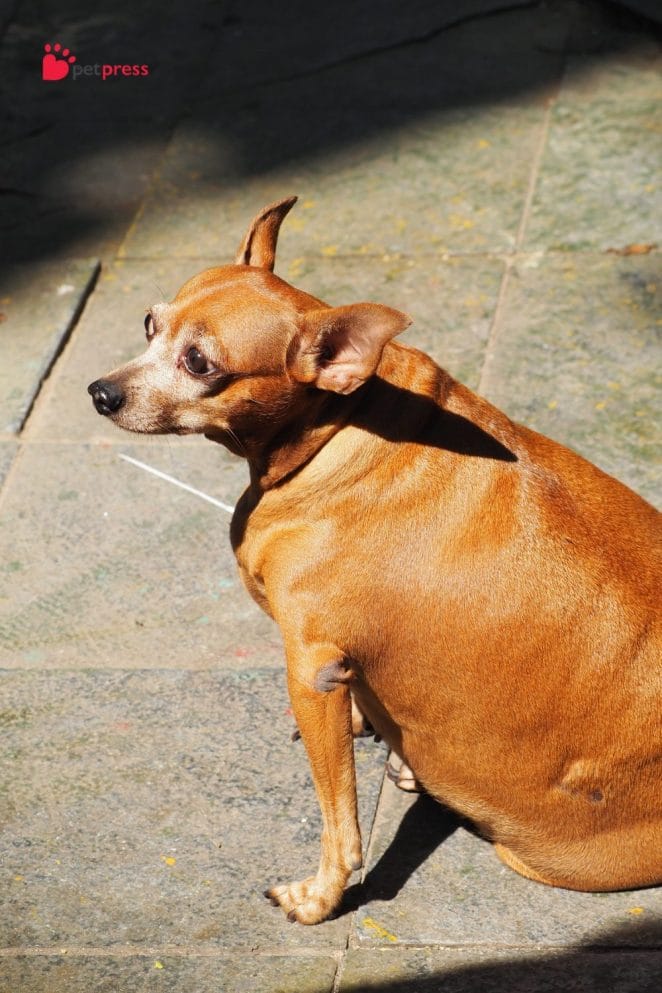
Incorporating Exercise Into Your Dog’s Routine
Adding exercise to your dog’s day can be both fun and rewarding. Try playing fetch or going on nature hikes together. These activities not only burn calories but also strengthen your bond.
To safely ramp up their activity, start slow and watch for signs of fatigue. For example, add an extra block to your walk each week. This gradual increase helps avoid injury and keeps exercise enjoyable for your furry friend.
Monitoring Progress and Adjusting the Plan
Monitoring your dog’s weight loss journey is crucial. Use a journal to track their weight and the changes you’ve made to their diet and exercise. This record helps you understand what’s working and what might need tweaking.
Sometimes, despite your best efforts, progress stalls, or your dog might seem off. This is when it’s wise to consult with a vet. They can provide guidance tailored to your dog’s specific health needs, ensuring they lose weight safely and healthily.

Conclusion
Tackling dog obesity isn’t just about cutting back on treats; it’s about embracing a holistic approach that includes the right diet and plenty of exercise. It’s a journey that requires understanding, patience, and a commitment to your furry friend’s wellbeing.
By finding the perfect balance between nutrition and activity, you’re not just helping your dog shed excess weight; you’re opening the door to a more vibrant, energetic, and happy life.
Remember, every small change you make in your dog’s diet and exercise routine is a step in the right direction. Celebrate the victories, whether it’s a pound lost or an extra block walked, and be patient with both yourself and your pup.
The path to a healthier dog isn’t always a straight line, and there will be challenges. But with commitment and love, you and your dog can navigate this journey successfully.
So, let’s make a pact to not just dream of a healthier life for our beloved dogs but to actively work towards it. With the right diet solution for overweight dogs and a splash of fun exercise, the possibilities are endless. Here’s to happier, healthier dogs living their best lives—one wag at a time.
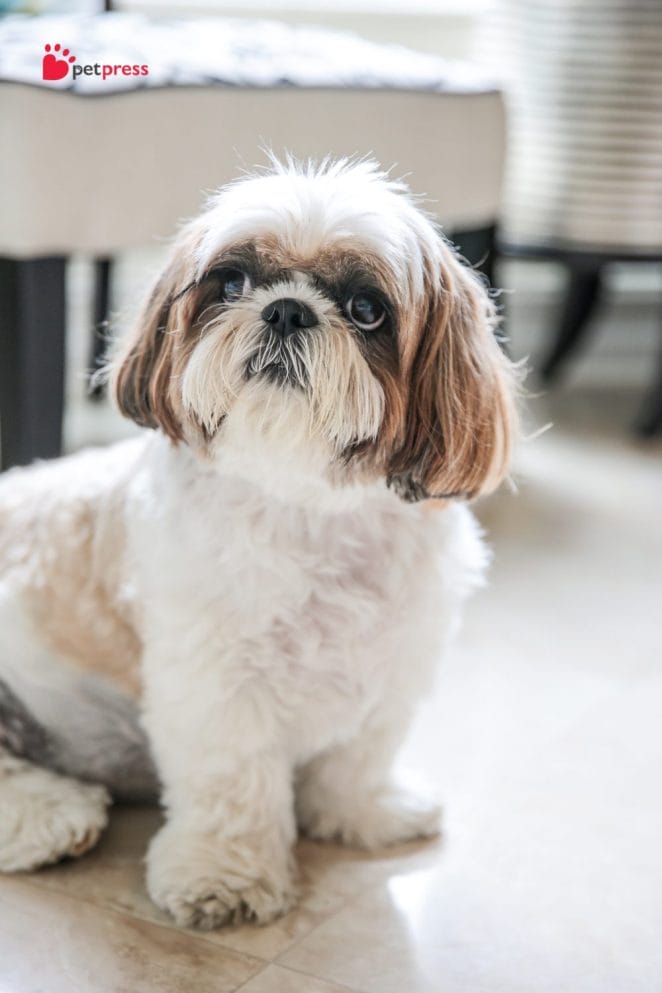
FAQs about Diet Solutions for Overweight Dogs
The best diet for overweight dogs focuses on balanced nutrition with controlled calories. Opt for high-quality dog food with lean proteins, low fats, and plenty of fiber. Remember, it’s not just about feeding less but feeding right. Consult with a vet to tailor a diet plan that suits your furry friend perfectly!
Check for visible waistlines and feel for their ribs. If the waist is absent and the ribs are hard to feel under a layer of fat, it’s likely your dog is overweight.
While reducing portion sizes can be part of the solution, it’s crucial to ensure your dog still gets the necessary nutrients. A sudden decrease in food can lead to malnutrition. The key is a balanced diet that supports weight loss without compromising on nutrition. Always adjust feeding under a vet’s guidance.
Weight loss dog foods can be effective due to their lower calorie and higher fiber content. However, switching to a weight loss formula should be done gradually and under the guidance of a vet. They’ll ensure the food meets your dog’s nutritional needs while helping them shed excess pounds.
If you’re unsure about your dog’s weight or how to start a weight loss plan, consulting a vet is always a good step. Additionally, seek professional advice if your dog isn’t losing weight despite your efforts or if they show signs of discomfort or health issues during their weight loss journey. A vet can provide personalized recommendations and rule out any underlying health problems.
Check Out More Fun Dog Tips and Tricks!
DIY Dog Exercise Equipment: Boost Your Pet’s Fitness at Home!
Canine Fitness: Discover the Joy of Low-Impact Dog Exercise
Mental Exercises For Dogs: Keep Your Dog Engaged


GIPHY App Key not set. Please check settings